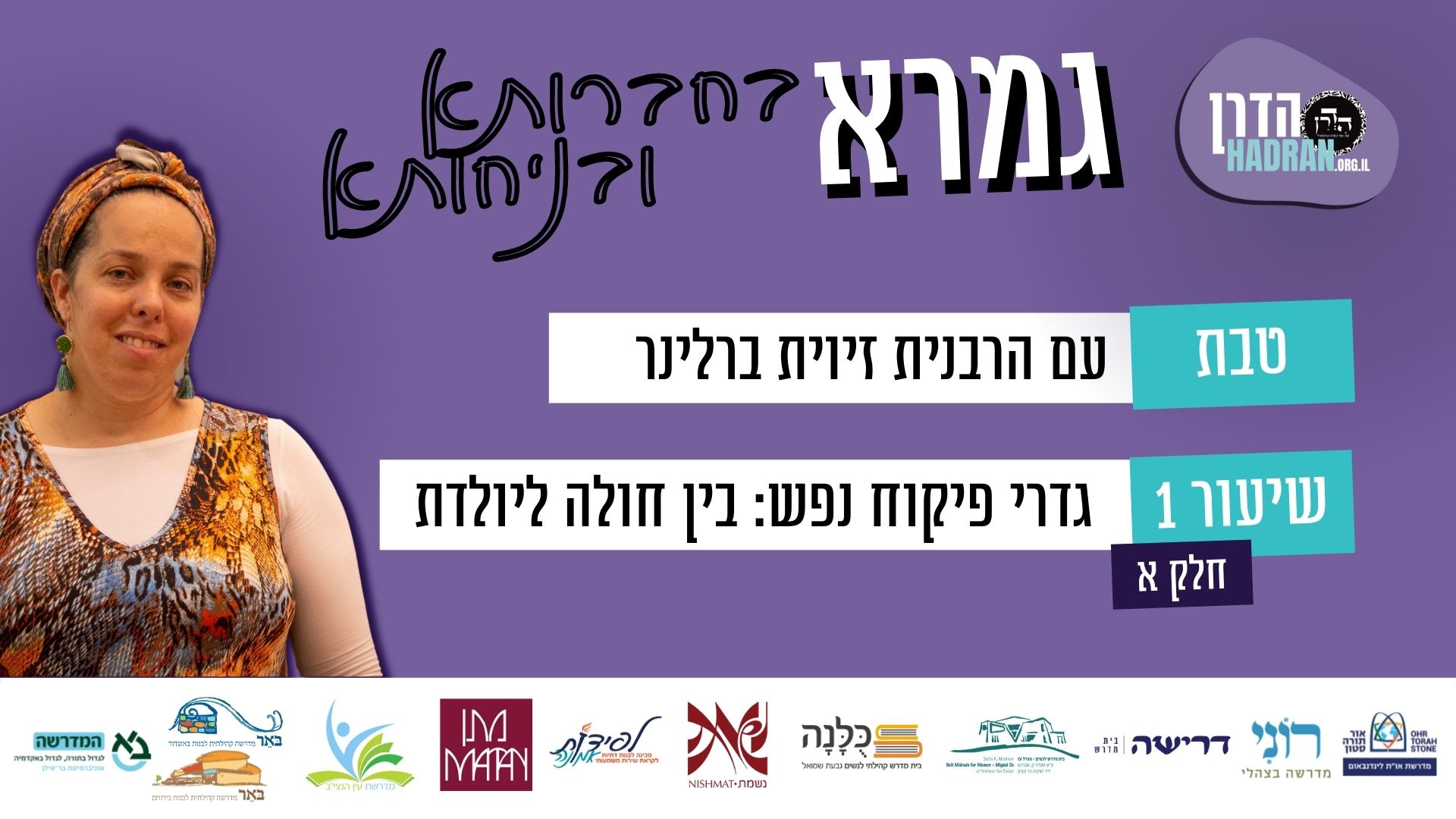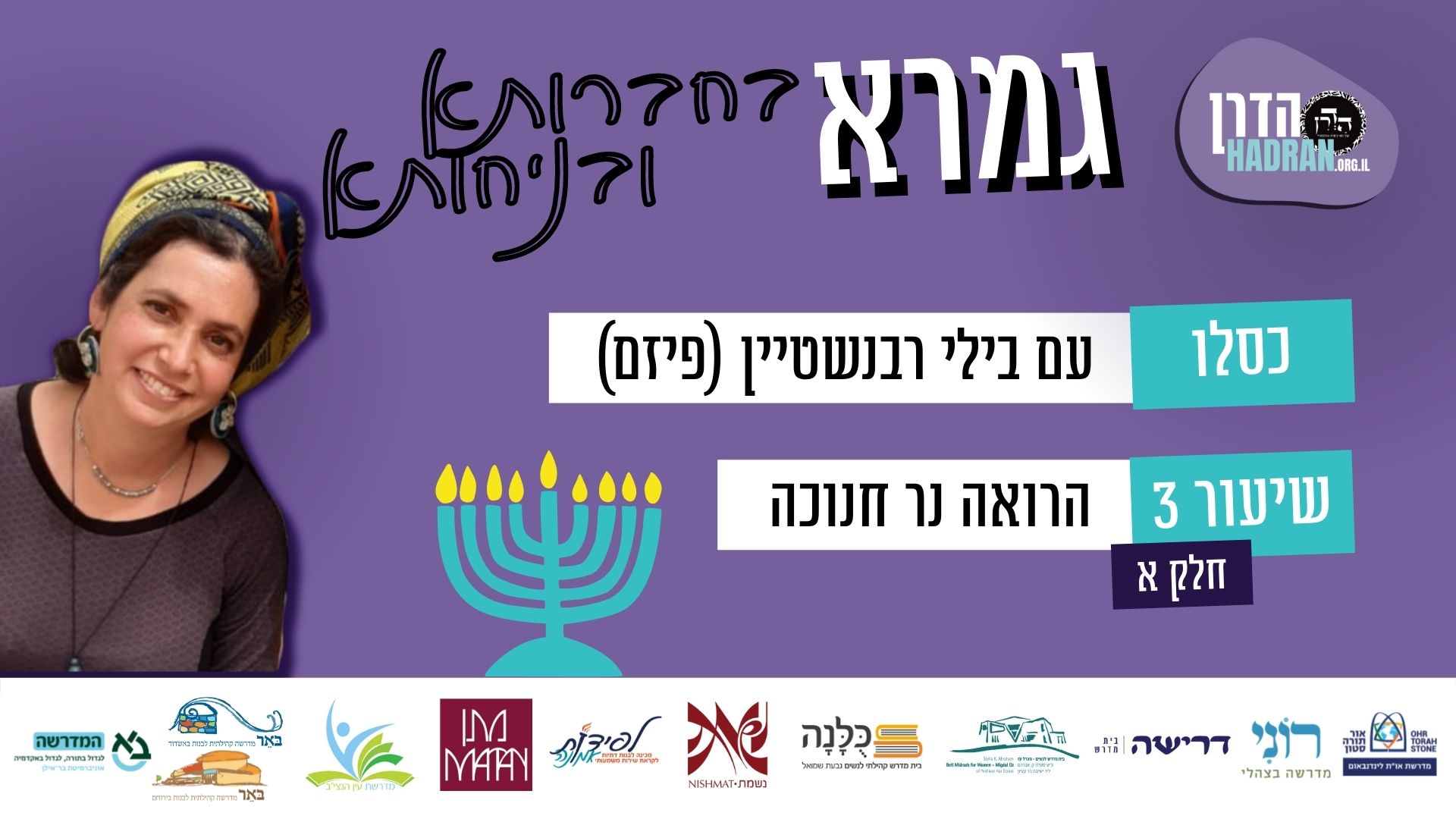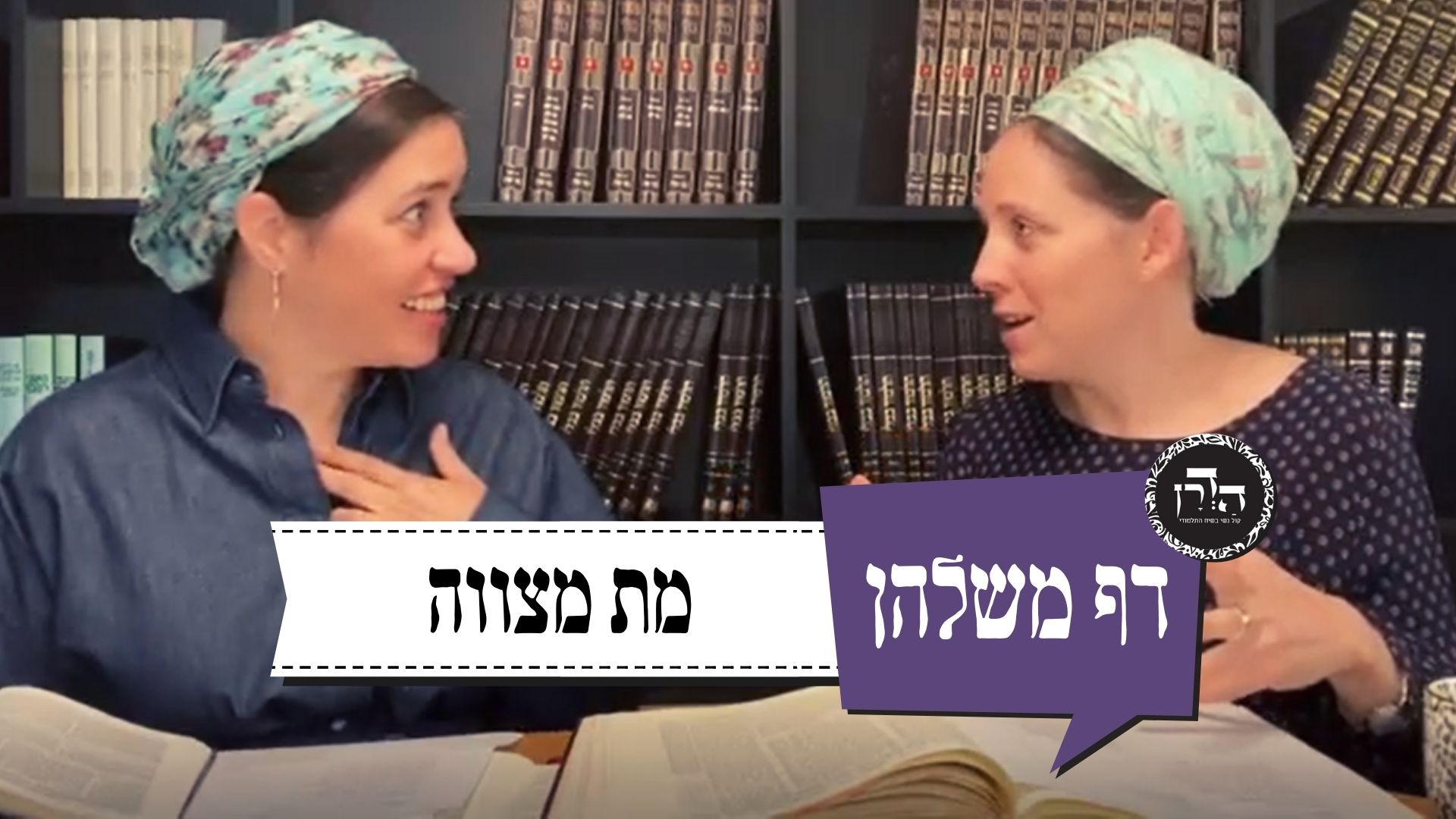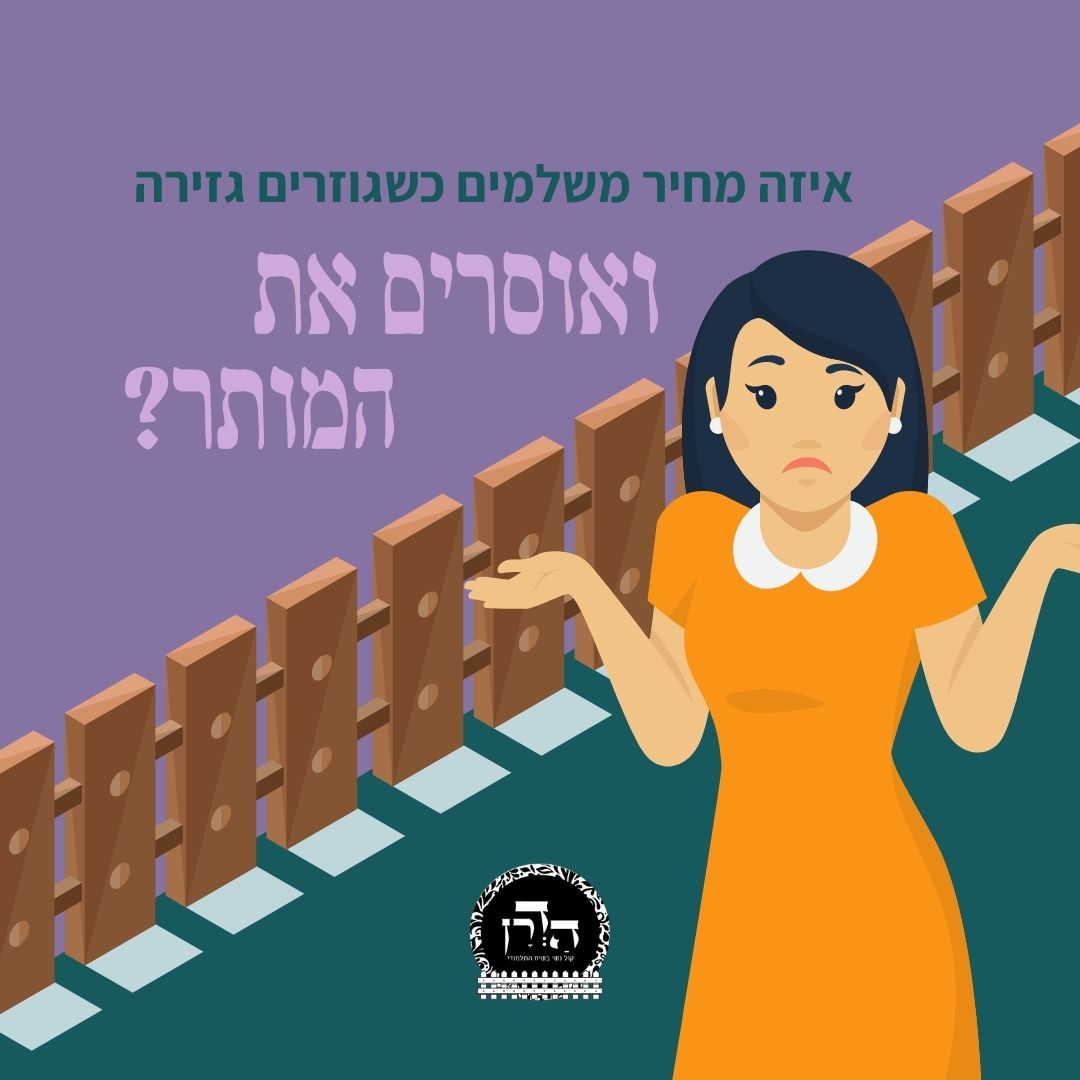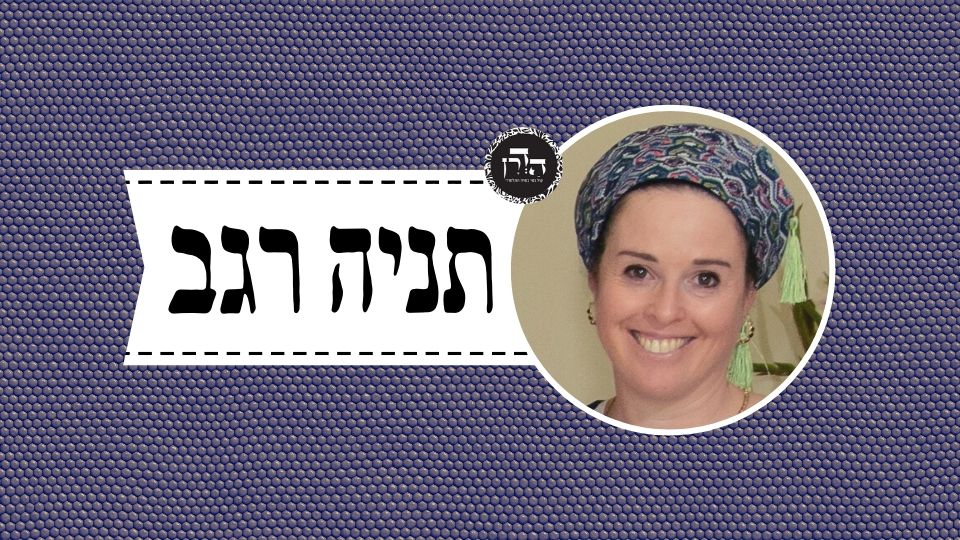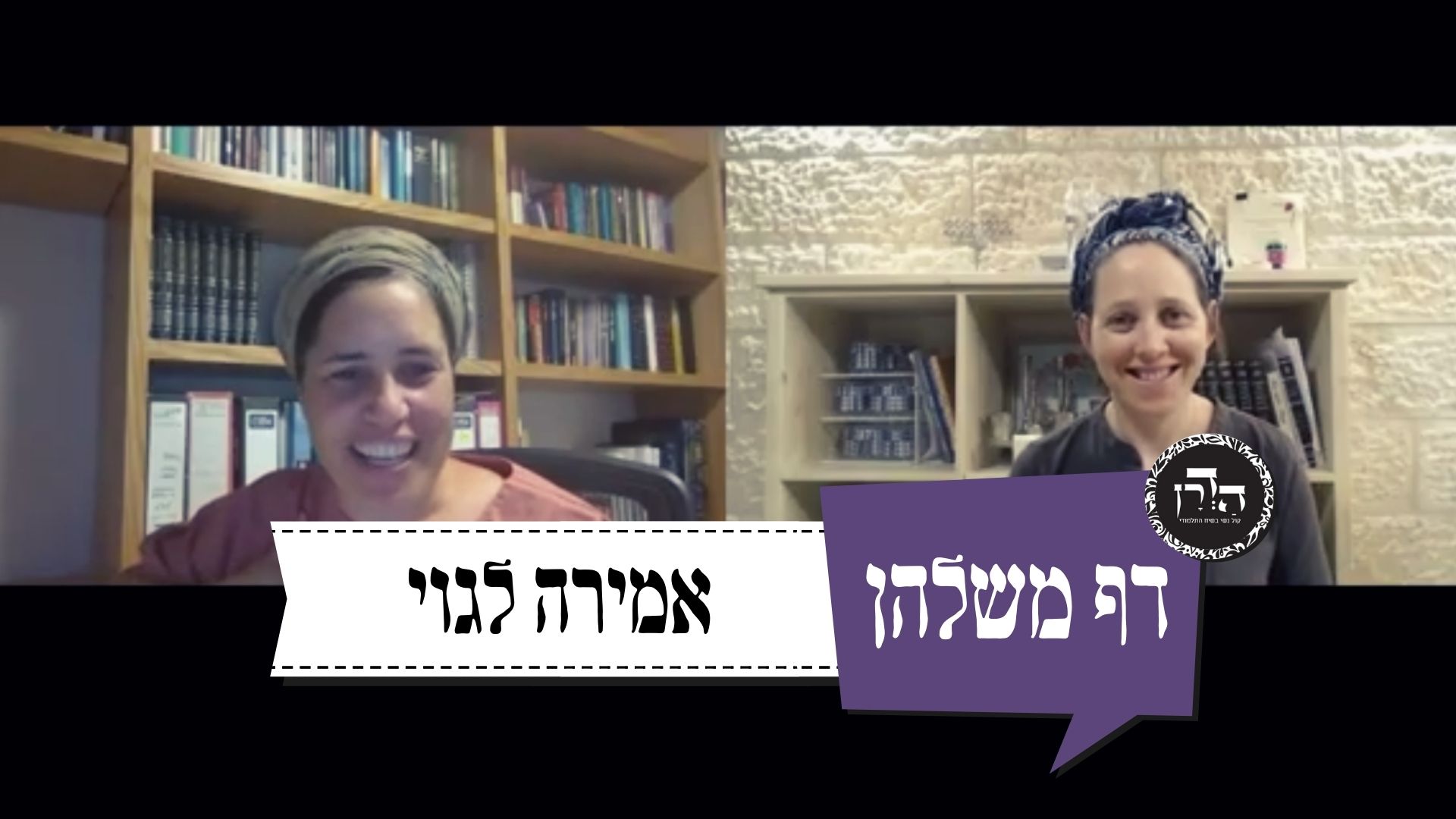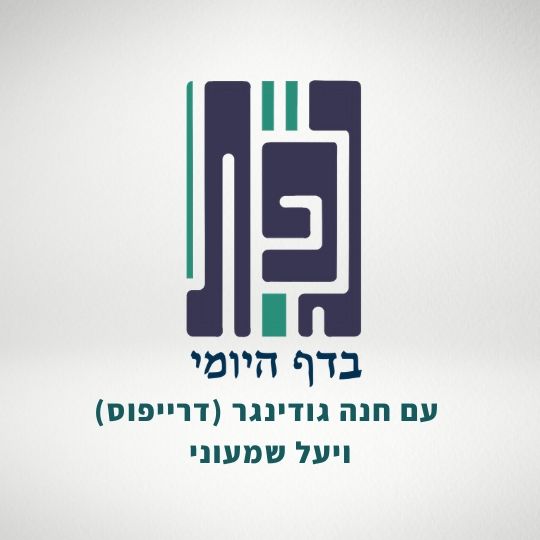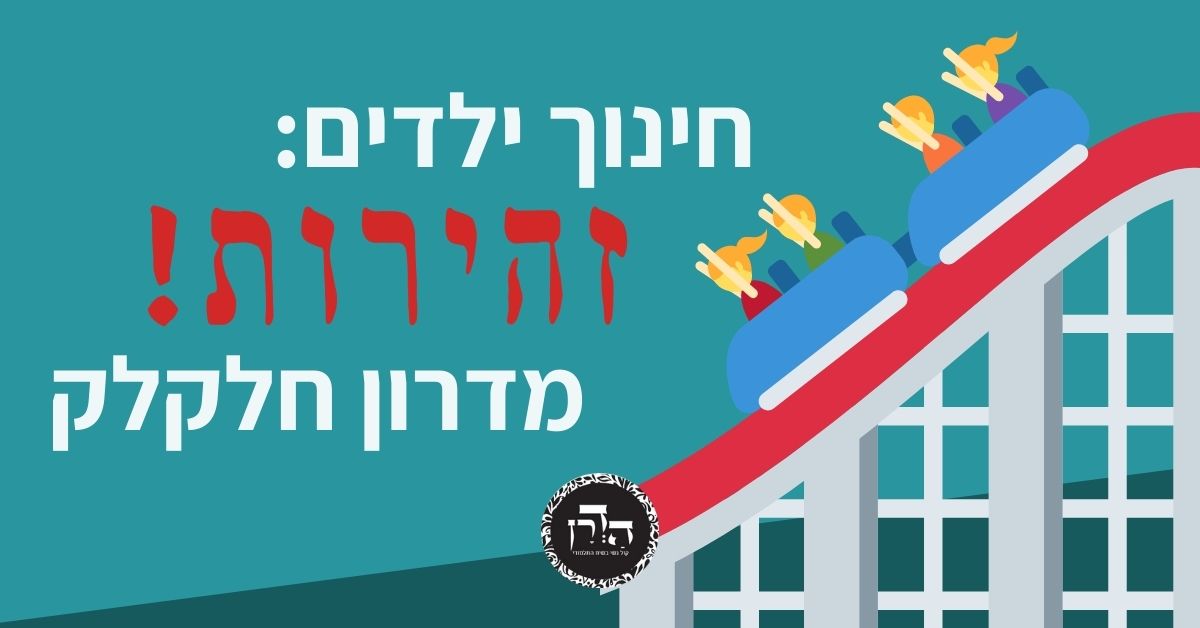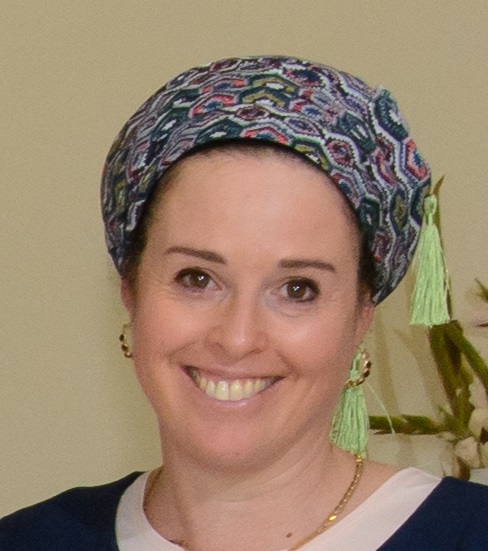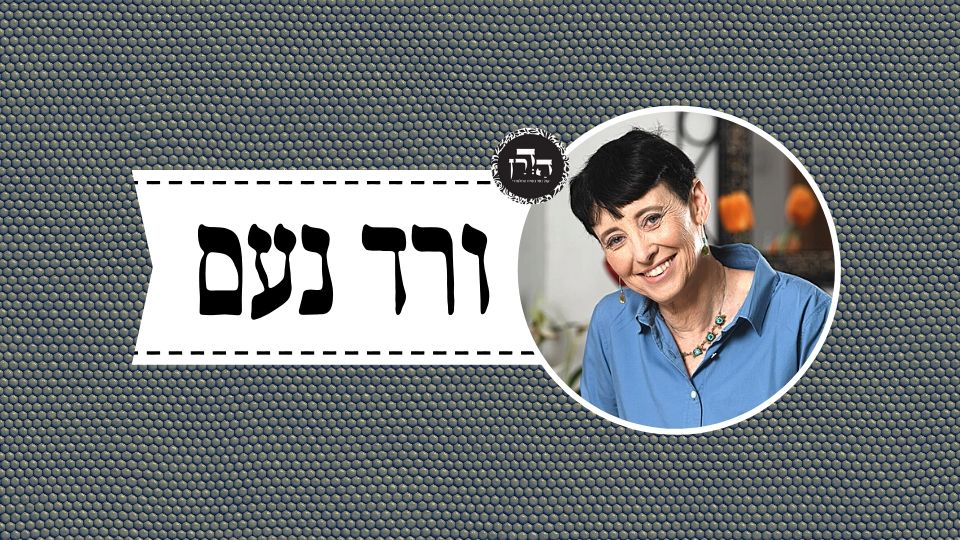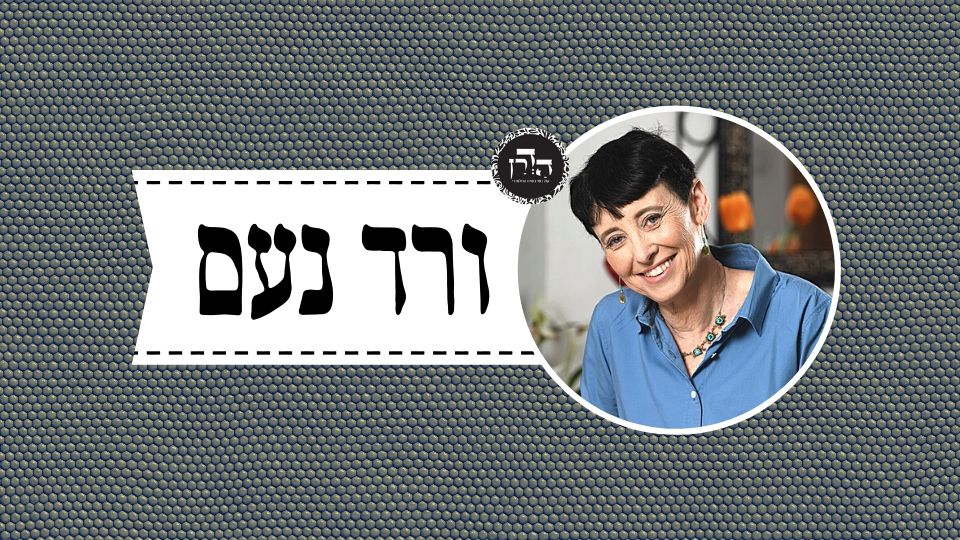למה במשנה שלנו מחייבים אפילו שאין הנחה או עקירה ממקום שיש בו ארבעה על ארבעה טפחים? רבה מציע שזה הולך לפי שיטת רבי עקיבא – שקלוטה באויר נחשב שאילו הונחה. אבל הגמרא מביאה שתי קושיות על פירוש זה. רב יוסף מציע שזה שיטת רבי והגמרא מנסה להבין איזה שיטה של רבי תואמת את העמדה הזאת? הגמרא מביאה שתי ברייתות עם דעות של רבי אבל דוחה גם את אלו.
כלים
העמקה
רוצה להבין מה באמת קורה מתחת לפני השטח של הסוגיה?
שיעורים, פודקאסטים והרחבות של מיטב המורות שלנו יפתחו לך עוד זוויות וכיווני חשיבה.
חדשה בלימוד הגמרא?
זה הדף הראשון שלך? איזו התרגשות עצומה! יש לנו בדיוק את התכנים והכלים שיעזרו לך לעשות את הצעדים הראשונים ללמידה בקצב וברמה שלך, כך תוכלי להרגיש בנוח גם בתוך הסוגיות המורכבות ומאתגרות.
פסיפס הלומדות שלנו
גלי את קהילת הלומדות שלנו, מגוון נשים, רקעים וסיפורים. כולן חלק מתנועה ומסע מרגש ועוצמתי.
שבת ד
כָּאן לְחָצֵר אַחֶרֶת. כְּדִבְעָא מִינֵּיהּ רָבָא מֵרַב נַחְמָן: הָיְתָה יָדוֹ מְלֵאָה פֵּירוֹת וְהוֹצִיאָהּ לַחוּץ, מַהוּ לְהַחֲזִירָהּ לְאוֹתָהּ חָצֵר? אָמַר לֵיהּ: מוּתָּר. לְחָצֵר אַחֶרֶת מַהוּ? אָמַר לֵיהּ: אָסוּר.
There, the baraita that prohibits returning the object, is referring to bringing it to a different courtyard, as Rava raised a dilemma before Rav Naḥman: One who was standing in a courtyard on Shabbat, and his hand was filled with fruits, and he extended it outside into the public domain, what is the ruling with regard to whether or not he is allowed to bring it back into the same courtyard where he is standing? Rav Naḥman said to him: It is permitted. And he asked him further: What is the ruling with regard to bringing it from the public domain to a different courtyard? He said to him: It is prohibited.
וּמַאי שְׁנָא! לְכִי תֵּיכוּל עֲלַהּ כּוֹרָא דְּמִילְחָא. הָתָם, לָא אִיתְעֲבִידָא מַחְשַׁבְתּוֹ. הָכָא, אִיתְעֲבִידָא מַחְשַׁבְתּוֹ.
Rava asked about this: And in what way is one case different from the other? By definition, both courtyards are private domains, and there is no apparent halakhic difference between them in terms of Shabbat. Rav Naḥman answered jokingly: When you eat a kor of salt while thinking it over, you will know the answer. Actually, the answer is simple: There, the baraita that taught that it is permitted to bring it back to the same courtyard, said so because his planned objective was not realized. Since he sought to take an object out of his courtyard, requiring him to bring the object back to its original place is a penalty of sorts. However, here, the baraita that taught that it is prohibited to bring it back to a different courtyard, said so because his planned objective was realized. Therefore, it is prohibited to bring it back there.
גּוּפָא. בָּעֵי רַב בִּיבִי בַּר אַבָּיֵי: הִדְבִּיק פַּת בַּתַּנּוּר הִתִּירוּ לוֹ לִרְדּוֹתָהּ קוֹדֶם שֶׁיָּבוֹא לִידֵי חִיּוּב חַטָּאת, אוֹ לֹא הִתִּירוּ?
Since Rav Beivai bar Abaye’s dilemma was mentioned in passing, the Gemara proceeds to discuss the matter itself. Rav Beivai bar Abaye raised a dilemma: One who erred and stuck bread in the oven on Shabbat, did they permit him to override a rabbinic prohibition and remove it before it bakes, i.e., before he incurs liability to bring a sin-offering for baking bread on Shabbat, or did they not permit him to do so?
אֲמַר לֵיהּ רַב אַחָא בַּר אַבָּיֵי לְרָבִינָא: הֵיכִי דָּמֵי? אִילֵּימָא בְּשׁוֹגֵג וְלָא אִידְּכַר לֵיהּ, לְמַאן הִתִּירוּ?
Rav Aḥa bar Abaye said to Ravina: What are the circumstances? If you say that he stuck the bread to the oven unwittingly and did not remember either that today was Shabbat or that it is prohibited to do so on Shabbat, to whom did they permit to remove it? If he remains unaware that a prohibition is involved, it will not occur to him to ask whether or not he is permitted to remove the bread before it bakes.
וְאֶלָּא לָאו דְּאִיהַדַּר וְאִידְּכַר, מִי מִחַיַּיב?! וְהָתְנַן: כׇּל חַיָּיבֵי חֲטָאוֹת — אֵינָן חַיָּיבִין עַד שֶׁתְּהֵא תְּחִלָּתָן שְׁגָגָה וְסוֹפָן שְׁגָגָה.
But rather, is it not a case where he then, before it baked, remembered that it is prohibited? In that case, is he liable to bring a sin-offering? Didn’t we learn in a mishna: All those who sin unwittingly and are therefore liable to bring sin-offerings are only liable if the beginning of their action was unwitting and the end of their action was unwitting. This means that throughout the entire action until its completion, the person remains unaware that his action is prohibited. Consequently, in our case, since he became aware that his action is prohibited while the bread was still baking, his very awareness exempts him from a sin-offering and removing the bread is no longer necessary to prevent him from incurring liability to bring a sin-offering.
אֶלָּא בְּמֵזִיד. ״קוֹדֶם שֶׁיָּבֹא לִידֵי אִיסּוּר סְקִילָה״ מִיבְּעֵי לֵיהּ!
Rather, say that that person stuck the bread in the oven intentionally, but afterward regrets having done so and does not want to violate the prohibition. However, if that is the case, the formulation of the dilemma is inaccurate. It should have said: Before he comes to violate a prohibition punishable by stoning. One who desecrates Shabbat intentionally is liable to be stoned, he is not merely liable to bring a sin-offering.
אָמַר רַב שֵׁילָא: לְעוֹלָם בְּשׁוֹגֵג, וּלְמַאן הִתִּירוּ — לַאֲחֵרִים.
Rav Sheila said: Actually, it is referring to a case where he did so unwittingly, and the dilemma whether or not they permitted removing the bread is not with regard to the person who stuck it in the oven, as he remains unaware of his transgression. Rather, with regard to whom is Rav Beivai raising a dilemma whether or not the Sages permitted him to remove the bread? It is with regard to others who wish to spare the unwitting sinner from violating a Torah prohibition.
מַתְקִיף לַהּ רַב שֵׁשֶׁת: וְכִי אוֹמְרִים לוֹ לָאָדָם ״חֲטָא כְּדֵי שֶׁיִּזְכֶּה חֲבֵירְךָ״?!
Rav Sheshet strongly objected to this. And does one tell another person: Sin so that another will benefit? Permitting one to violate a prohibition, even one prohibited by rabbinic law, in order to help another perform a mitzva is inconceivable. The same is true with regard to preventing another from violating a more severe prohibition.
אֶלָּא אָמַר רַב אָשֵׁי: לְעוֹלָם בְּמֵזִיד. וְאֵימָא: קוֹדֶם שֶׁיָּבֹא לִידֵי אִיסּוּר סְקִילָה. רַב אַחָא בְּרֵיהּ דְּרָבָא מַתְנֵי לַהּ בְּהֶדְיָא. אָמַר רַב בִּיבִי בַּר אַבָּיֵי: הִדְבִּיק פַּת בַּתַּנּוּר הִתִּירוּ לוֹ לִרְדּוֹתָהּ קוֹדֶם שֶׁיָּבֹא לִידֵי אִיסּוּר סְקִילָה.
Rather, Rav Ashi said: Actually, it is referring to a case where he stuck the bread in the oven intentionally. And say, emend the text as follows: Before he comes to violate a prohibition punishable by stoning. Indeed, Rav Aḥa, son of Rava, would teach it explicitly in that manner; not as a dilemma, but rather, as a halakhic ruling. According to his version, Rav Beivai bar Abaye said: With regard to one who stuck bread in an oven on Shabbat eve, the Sages permitted him to remove it from the oven on Shabbat before he comes to violate a prohibition punishable by stoning.
פָּשַׁט הֶעָנִי אֶת יָדוֹ: אַמַּאי חַיָּיב? וְהָא בָּעֵינַן עֲקִירָה וְהַנָּחָה מֵעַל גַּבֵּי מְקוֹם אַרְבָּעָה עַל אַרְבָּעָה, וְלֵיכָּא?
We learned in the mishna several examples where the poor person extended his hand: One, when he placed an object into the hand of the homeowner and one, when he took an object from the hand of the homeowner. In those cases, we learned that he is liable to bring a sin-offering. The Gemara asks: Why is he liable? Don’t we require that halakhic lifting and placing be performed from and onto the surface of an area that is four by four handbreadths? A smaller area is not considered a defined place, and it is as if the object were not there at all; and a person’s hand is not that size. Why, then, is he liable?
אָמַר רַבָּה: הָא מַנִּי? — רַבִּי עֲקִיבָא, דְּאָמַר לָא בָּעֵינַן מְקוֹם אַרְבָּעָה עַל אַרְבָּעָה. דִּתְנַן: הַזּוֹרֵק מֵרְשׁוּת הַיָּחִיד לִרְשׁוּת הַיָּחִיד וּרְשׁוּת הָרַבִּים בָּאֶמְצַע, רַבִּי עֲקִיבָא מְחַיֵּיב, וַחֲכָמִים פּוֹטְרִים.
Rabba said: Whose opinion is it in this mishna? It is the opinion of Rabbi Akiva who said that we do not require a place of four by four handbreadths. According to his opinion, even a smaller area is considered a significant place in terms of carrying out on Shabbat. As we learned in a mishna: One who throws an object from the private domain to the other private domain and there is the public domain in the middle, Rabbi Akiva deems him liable for carrying out into the public domain, and the Rabbis deem him exempt because the object merely passed through the public domain and did not come to rest in it.
רַבִּי עֲקִיבָא סָבַר אָמְרִינַן ״קְלוּטָה כְּמִי שֶׁהוּנְּחָה דָּמְיָא״. וְרַבָּנַן סָבְרִי לָא אָמְרִינַן ״קְלוּטָה כְּמִי שֶׁהוּנְּחָה דָּמְיָא״.
This dispute can be explained as follows: Rabbi Akiva holds that we say that an object in airspace is considered at rest. In his opinion, an object that passed, even briefly, through the airspace of the public domain is considered as if it came to rest in that domain. Therefore, one who threw the object has, for all intents and purposes, lifted the object from the private domain and placed it in the public domain, and he is liable. And the Rabbis hold that we do not say that an object in airspace is considered at rest. In their opinion, although he lifted the object from the private domain, it never came to rest in the public domain. Since he never placed it in the public domain, he is not liable. Regardless, according to Rabbi Akiva’s opinion, placing does not require a defined area. The mere presence of an object in the public domain accords it the legal status of having been placed there. Apparently, there is no requirement that an object be placed on a surface with an area of four by four handbreadths.
לְמֵימְרָא דִּפְשִׁיטָא לֵיהּ לְרַבָּה דְּבִקְלוּטָה כְּמִי שֶׁהוּנְּחָה דָּמְיָא,
Initially, the Gemara wonders about the substance of Rabba’s opinion: Is that to say that it is obvious to Rabba that, with regard to whether or not an object in airspace is considered at rest,
וּבְתוֹךְ עֲשָׂרָה פְּלִיגִי? וְהָא מִיבַּעְיָא בָּעֵי לַהּ רַבָּה! דְּבָעֵי רַבָּה: לְמַטָּה מֵעֲשָׂרָה פְּלִיגִי — וּבְהָא פְּלִיגִי: דְּרַבִּי עֲקִיבָא סָבַר קְלוּטָה כְּמִי שֶׁהוּנְּחָה דָּמְיָא, וְרַבָּנַן סָבְרִי לָא אָמְרִינַן קְלוּטָה כְּמִי שֶׁהוּנְּחָה דָּמְיָא. אֲבָל לְמַעְלָה מֵעֲשָׂרָה דִּבְרֵי הַכֹּל פָּטוּר, וּדְכוּלֵּי עָלְמָא לָא יָלְפִינַן זוֹרֵק מִמּוֹשִׁיט.
and it is in a case where the object passed within ten handbreadths of the ground that they disagree? And wasn’t it raised as a dilemma by Rabba, as it was unclear to him whether or not that is the correct explanation of the dispute between Rabbi Akiva and the Rabbis? As Rabba raised a dilemma: Do those who dispute the matter of one who throws from a private domain to a private domain with a public domain in the middle disagree with regard to a case where the object was thrown below ten handbreadths off the ground, and this is the point over which they disagree: Rabbi Akiva holds that an object in airspace is considered at rest, and the Rabbis hold that we do not say that an object in airspace is considered at rest? However, if the object passed more than ten handbreadths above the public domain, everyone agrees that he is exempt and everyone agrees that we do not derive the halakha of throwing from the halakha of passing. There is a special halakha with regard to passing objects: One standing in a private domain who passes an object through a public domain to another private domain, even though the object did not come to rest in the public domain, his action is considered to have carried out. However, the halakha with regard to throwing is different.
אוֹ דִילְמָא לְמַעְלָה מֵעֲשָׂרָה פְּלִיגִי — וּבְהָא פְּלִיגִי: דְּרַבִּי עֲקִיבָא סָבַר יָלְפִינַן זוֹרֵק מִמּוֹשִׁיט, וְרַבָּנַן סָבְרִי לָא יָלְפִינַן זוֹרֵק מִמּוֹשִׁיט. אֲבָל לְמַטָּה מֵעֲשָׂרָה דִּבְרֵי הַכֹּל חַיָּיב. מַאי טַעְמָא, אָמְרִינַן קְלוּטָה כְּמִי שֶׁהוּנְּחָה דָּמְיָא.
Or, perhaps they disagree with regard to a case where the object passed ten handbreadths above the ground, and this is the point over which they disagree: Rabbi Akiva holds that we derive the halakha of throwing from the halakha of passing and considers them details of one halakha. And the Rabbis hold that we do not derive throwing from passing, and, although one who passes the object in that case is liable, one who throws it is not. The halakha with regard to passing is a unique halakha, a Torah decree, and other cases cannot be derived from it. However, with regard to one who throws from one private domain to another via a public domain, if the object passed below ten handbreadths off the ground, everyone agrees that he is liable. What is the reason for this? Everyone agrees that an object in airspace is considered at rest. Since Rabba himself is uncertain as to the point of the dispute in that mishna with regard to one who throws an object, how can he determine Rabbi Akiva’s opinion in the matter of our mishna?
הָא לָא קַשְׁיָא: בָּתַר דְּאִיבַּעְיָא הֲדַר אִיפְּשִׁיטָא לֵיהּ דְּסָבַר רַבִּי עֲקִיבָא קְלוּטָה כְּמִי שֶׁהוּנְּחָה דָּמְיָא.
The Gemara answers: That is not difficult. It can be explained that, after he raised the dilemma, it was later resolved for him that the correct understanding is that Rabbi Akiva alone holds that an object in airspace is considered at rest.
וְדִילְמָא הַנָּחָה הוּא דְּלָא בָּעֲיָא, הָא עֲקִירָה בָּעֲיָא!
However, there is room to question the parallel between Rabbi Akiva’s opinion and the case in our mishna. Perhaps placing alone does not require an area of four by four in order to be considered halakhic placing, but lifting does require a minimum of four by four handbreadths to be considered halakhic lifting. Perhaps placing, which is merely the conclusion of the prohibited labor, does not require the same conditions as lifting, which is the beginning and the essence of the labor of carrying out (Rashba). From Rabbi Akiva’s opinion, a conclusion may be drawn that an object in airspace is considered placed even without the surface area of four by four handbreadths. But, a conclusion may not be drawn that an object lifted from a surface lacking that area is considered lifted.
אֶלָּא אָמַר רַב יוֹסֵף: הָא מַנִּי? — רַבִּי הִיא.
Rather, Rav Yosef said: Whose opinion is it in this mishna? It is the opinion of Rabbi Yehuda HaNasi.
הֵי רַבִּי? אִילֵּימָא הָא רַבִּי, דְּתַנְיָא: זָרַק וְנָח עַל גַּבֵּי זִיז כׇּל שֶׁהוּא — רַבִּי מְחַיֵּיב, וַחֲכָמִים פּוֹטְרִין.
The Gemara asks: To which of Rabbi Yehuda HaNasi’s halakhot is Rav Yosef referring? If you say that he is referring to this halakha, as it was taught in a baraita: One who threw an object on Shabbat in the public domain from the beginning to the end of four cubits, and it, the object, came to rest atop a projection of any size, Rabbi Yehuda HaNasi deems him liable, and the Rabbis deem him exempt. Apparently, this proves that, according to Rabbi Yehuda HaNasi, there is no minimum area required for lifting and placing. This is the halakha to which Rav Yosef referred.
הָתָם כִּדְבָעֵינַן לְמֵימַר לְקַמָּן כִּדְאַבָּיֵי, דְּאָמַר אַבָּיֵי: הָכָא בָּאִילָן הָעוֹמֵד בִּרְשׁוּת הַיָּחִיד וְנוֹפוֹ נוֹטֶה לִרְשׁוּת הָרַבִּים, וְזָרַק וְנָח אַנּוֹפוֹ.
The Gemara rejects this: There, the explanation is according to what we will need to say later in accordance with the statement of Abaye, as Abaye said: Here, the baraita is not dealing with just any situation. Rather, it is dealing with a special case where there is a tree standing in the private domain and its boughs lean into the public domain, and one threw an object from the public domain and it rested upon the boughs of the tree.
דְּרַבִּי סָבַר: אָמְרִינַן ״שְׁדִי נוֹפוֹ בָּתַר עִיקָּרוֹ״. וְרַבָּנַן סָבְרִי: לָא אָמְרִינַן ״שְׁדִי נוֹפוֹ בָּתַר עִיקָּרוֹ״.
Rabbi Yehuda HaNasi holds that we say: Cast its boughs after its trunk. The tree’s branches are considered an extension of its trunk. Therefore, the entire tree is considered as a private domain, and one who throws onto it is liable. And the Rabbis hold that we do not say: Cast its boughs after its trunk. Therefore, the boughs themselves are not considered to be a private domain, and one who throws atop them from the public domain is not liable. Since Rabbi Yehuda HaNasi considers the boughs of the tree like part of the trunk, something thrown atop the tree is considered as if it were placed on the trunk, which is four by four handbreadths. If so, one cannot conclude from here that there is no need for a significant area according to Rabbi Yehuda HaNasi.
אֶלָּא הָא רַבִּי, דְּתַנְיָא: זָרַק מֵרְשׁוּת הָרַבִּים לִרְשׁוּת הָרַבִּים וּרְשׁוּת הַיָּחִיד בָּאֶמְצַע — רַבִּי מְחַיֵּיב, וַחֲכָמִים פּוֹטְרִין.
Rather, it is possible that Rav Yosef referred to this halakha of Rabbi Yehuda HaNasi, as it was taught in a baraita: One who threw an object on Shabbat from the public domain to the public domain and the private domain was in the middle, Rabbi Yehuda HaNasi deems him liable for carrying out from domain to domain, and the Rabbis deem him exempt.
וְאָמַר רַב יְהוּדָה אָמַר שְׁמוּאֵל, מְחַיֵּיב הָיָה רַבִּי שְׁתַּיִם: אַחַת מִשּׁוּם הוֹצָאָה, וְאַחַת מִשּׁוּם הַכְנָסָה. אַלְמָא לָא בָּעֵי עֲקִירָה וְלָא הַנָּחָה עַל גַּבֵּי מְקוֹם אַרְבָּעָה עַל אַרְבָּעָה.
And Rav Yehuda said that Shmuel said: In that case, Rabbi Yehuda HaNasi holds that the one who threw the object is liable to bring two sin-offerings, as he violated two prohibitions: One, due to carrying from the public domain into the private domain, when the object passed through the airspace of the private domain; and one, due to carrying from the private domain out to the public domain. Apparently, he requires neither lifting from nor placing upon an area of four by four handbreadths, as not only is he liable for carrying the object into a private domain and placing it by means of passing through its airspace, but he is also liable for lifting the object from that private domain and bringing it to the public domain. According to Rabbi Yehuda HaNasi, neither lifting nor placing requires a significant area.
הָא אִיתְּמַר עֲלַהּ, רַב וּשְׁמוּאֵל דְּאָמְרִי תַּרְוַויְיהוּ:
The Gemara rejects this proof. Wasn’t it stated with regard to this dispute that Rav and Shmuel both said:



